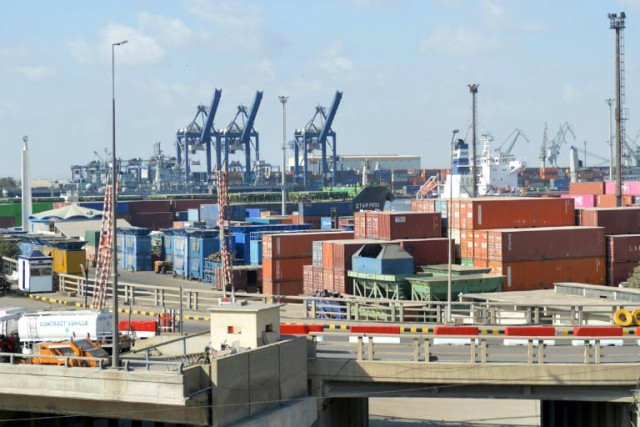Govt allows full range of imports
SBP removes condition of 100% advance payment on import of hundreds of items

Pakistan has reopened imports of the full range of goods by removing restrictions imposed on the import of 826 items from time to time between 2017 and 2022.
The major items freed from import restrictions include raw material for cement and steel, vehicle parts, confectioneries, chocolate, mineral water, cigarette paper, electrical and electronic goods and some machinery and parts.
According to a circular of the State Bank of Pakistan (SBP), the bank has removed the condition of depositing up to 100% payment in advance for the import of hundreds of items.
The central bank said in a circular on Friday “it has been decided to withdraw existing cash margin requirement/ CMR (advance payment) on import of items with effect from March 31, 2023.”
A couple of months ago, the SBP instructed commercial banks to prioritise import financing for different goods including energy (petroleum products and LNG), pharmaceuticals and medical equipment, raw material and machinery for exporters and vehicles (including passenger cars).
Talking to The Express Tribune, Pak-Kuwait Investment Company Head of Research Samiullah Tariq said the government had removed the restrictions as it was a condition of the International Monetary Fund (IMF) for the resumption of its $6.5 billion loan programme.
Arif Habib Limited Head of Research Tahir Abbas said now importers were no more required to deposit any amount in advance.
Linking the central bank’s decision with a pre-requisite condition of the IMF, he said it was one more step in the direction of reviving the IMF’s Extended Fund Facility (EFF).
He recalled that the central bank had softened the condition of 100% cash margin in August 2022 and allowed traders to import goods on only 25% advance payment in case they were due to make payment within 90 to 180 days. Those who were to make import payment after 180 days were to submit zero margins, but those who were due to make import payment in less than 90 days were liable to pay 100% advance payment.
“But now all restrictions have been removed with regard to advance payment, according to the latest SBP circular.”
Ismail Iqbal Securities Head of Research Fahad Rauf said the removal of the condition of advance payment by importers “…will reduce the liquidity requirement of importers.”
Technically, the demand for US dollars should immediately go down in the inter-bank market. However, practically it may not be possible due to the limited foreign exchange reserves of $4.59 billion, which provided an import cover of just one month, he said.
On the contrary, the government has been able to push down the demand for import by almost half keeping in view the low foreign exchange resaves and mitigate the risk of default on foreign debt repayment.
Anyhow, the decision to remove restrictions on imports stands out positive for the country, experts said.
Earlier, the government imposed curbs on imports from time to time to slow down the outflow of foreign exchange.
Pakistan lifted the restrictions on imports after its current account deficit narrowed to a two-year low at $78 million in February 2023 in the wake of import control measures. However, the risk of default on foreign debt repayment continued to remain.
Pakistan completely opened imports after China, the second largest economy, provided $1.7 billion over the previous month and rolled over another $2 billion on Thursday.
Otherwise, other multilateral and bilateral creditors, who have made financial commitments worth around $9 billion in flood relief, are still awaiting the IMF’s nod before honouring their commitments.
On the positive side, there are 826 items from which restrictions have been removed.
Some items are in the confectionery category which include ice cream, butter, chocolate, cheese, fish, yogurt and natural honey.
Items in fruit and vegetable category include fresh dates, dry fruits, prickles, bulgur wheat, juices and mineral water.
Other items are smoking tobacco, non-alcoholic beer, perfumes, makeup articles like nail polish and lipstick.
Cigarette paper, raw material for steel (cold-rolled coil and hot-rolled coil), cement and clinker are also included.
Others are readymade garments, footwear, ceramics, electronic and electrical items, video games, wooden furniture, motorcycles, old used and reconditioned tyres, tubes and their raw material, bicycles, diapers, granite and other stones, SIM cards, other live animals, other rice in husk (paddy), other grain sorghum (jawar), microwave ovens, LCDs and colour television sets.
Published in The Express Tribune, March 25th, 2023.
Like Business on Facebook, follow @TribuneBiz on Twitter to stay informed and join in the conversation.


















COMMENTS
Comments are moderated and generally will be posted if they are on-topic and not abusive.
For more information, please see our Comments FAQ